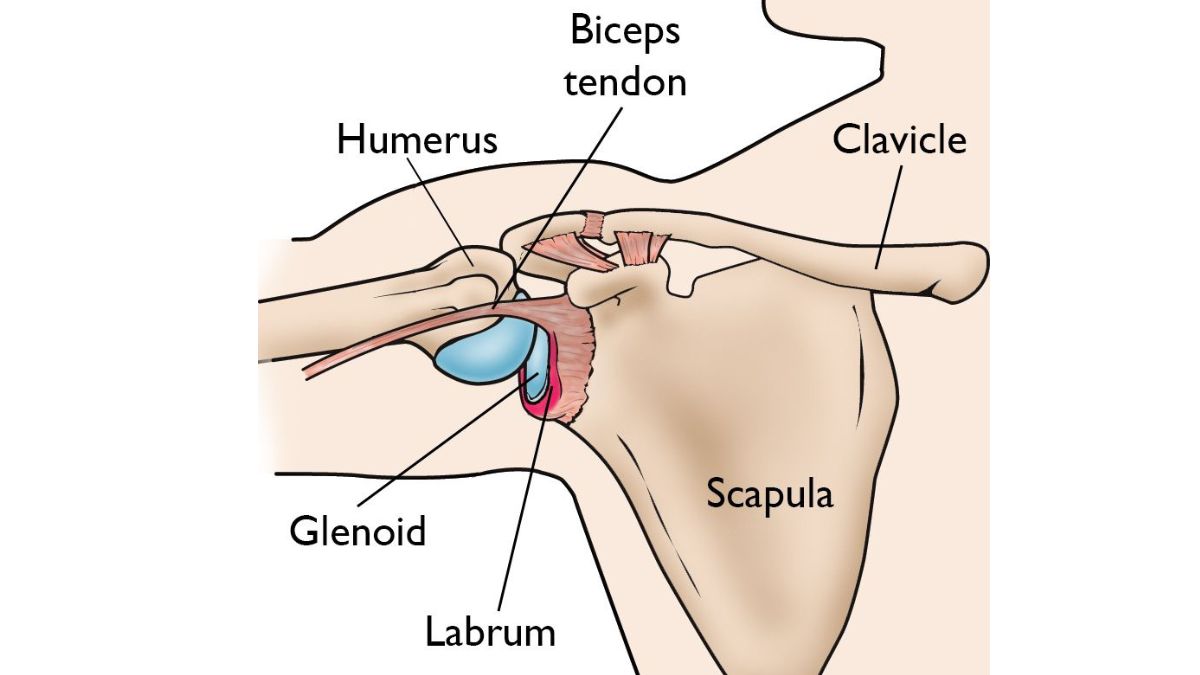HEALTH
Partnering with a Translation Company for Certified Medical Translation

The need for precise and accredited medical document translation has never been higher in the connected world of today. These services are essential to the healthcare and life sciences industries, helping with anything from enabling global clinical trials to providing patient care despite language challenges. Critical information is included in medical documents such as prescription labels, permission forms, and patient records. Any misunderstanding or mistranslation of this data could have serious repercussions, such as faulty diagnoses, legal problems, or even regulatory infractions. This emphasizes how important translation services are. Healthcare providers, pharmaceutical companies, and others can ensure the confidentiality, correctness, and compliance of their translated medical records by taking the assistance of a translation services company.
Why Certification in Medical Document Translation is Important
Certified medical document translation services translate medical records to guarantee the correctness and legitimacy of the medical document. Let’s have a look at why certification is required in medical document translation.
Legal Compliance
When submitting medical records to government organizations, courts, or regulatory authorities, certified translations are often required by law. This stipulation guarantees that the documents conform to both domestic and global legal norms. Certified translations are essential for preserving the integrity of legal procedures because, for example, an incorrect translation in a medical negligence case could result in incorrect conclusions.
Regulatory Standards
Strict regulatory frameworks protect patient safety and provide global uniformity in the medical industry. These requirements must be met by medical records utilized in clinical trials, medication approvals, or the introduction of medical devices.
Moral Responsibility
For healthcare services to provide successful treatment, effective communication is essential. Any error can be dangerous for human health. To treat lethal diseases and develop confidence between patients and providers, certified translators have a moral obligation to provide clear and concise translations.
Different Kinds of Certified Medical Document Translations
Let’s have a look at medical documents that require certified medical document translation services.
Patient Records
To ensure continuity of care when individuals move between countries or healthcare providers, patient data is crucial. Certified translations are essential to guarantee that medical histories, diagnoses, and treatment plans are properly conveyed to immigrants, expatriates, or patients seeking specialized care abroad.
Clinical Trial Documents
Protocols, case report forms, investigator brochures, and patient recruitment materials must be translated because clinical trials take place across national borders. To ensure that trials are carried out morally and by international standards, certified translations are essential for fulfilling the strict documentation.
Pharmaceutical Labels
It is both morally and legally required that drug labels, usage guidelines, and safety warnings be translated accurately. Inaccuracies in these records may result in product recalls, regulatory penalties, or patient injury. Certified translations guarantee that the content is understandable and complies with laws governing the pharmaceutical sector.
Consent Forms
A key idea in both research and treatment is informed consent. To guarantee that patients are completely aware of the processes, possible risks, and advantages, consent paperwork for operations, clinical trials, or experimental treatments must be appropriately translated. By ensuring the accuracy of these papers, certified translations promote well-informed decision-making.
Why Work with a Professional Translation Services Company?
Accuracy and compliance are essential when handling private medical records. Professional translation service providers focus on fulfilling these needs, providing knowledge and expertise that generalists or freelance translators cannot match. Here are some reasons why working with a professional translation services company is crucial.
Expertise in Medical Terminology
With its abundance of technical terms, abbreviations, and context-specific jargon that might differ between languages and geographical areas, medical language is extremely specialized. Linguists with extensive knowledge of medical terminology are employed by professional translation providers. These translators thoroughly comprehend the subtleties of medical terminology because they have backgrounds in healthcare, drugs, or the life sciences.
For instance, careful word choice is needed when translating a surgical procedure guideline or a notice of a drug interaction. Errors could be fatal if a phrase is misunderstood or a region-specific medical convention is overlooked. Professional translators ensure that the original document’s meaning and intent are maintained across languages, promoting effective communication between patients, regulators, and healthcare providers.
Access to Certified Translators
To prove their competence in both language and specialist sectors, such as legal or medical translation, certified translators must pass stringent training and exams. Access to a network of qualified experts who satisfy global quality standards is guaranteed when working with a professional translation company.
These qualified translators are well-versed in the ethical and legal standards for translating medical documents. For instance, they know how to guarantee that translated documents have the required certifications or notary seals for official use and how to handle private patient information. This degree of experience gives stakeholders peace of mind and lends credibility to the translated materials.
Quality Assurance
Quality assurance (QA) is a top priority for certified medical document translation services to guarantee the highest levels of precision. To find and fix mistakes, inconsistencies, or omissions, their multi-step QA procedures usually entail careful editing and proofreading. To verify technical accuracy, subject-matter specialists may provide thorough assessments of important materials, such as medical texts.
Final evaluations are also carried out to confirm compliance with formatting and regulatory requirements as per the document’s intended usage. These stringent quality assurance procedures reduce mistakes, improve precision, and ensure that translated texts are understandable and appropriate for their intended use.
Wrapping Up
For global healthcare to be effective, medical document translation must be accurate and trustworthy. Healthcare firms can guarantee legal compliance, protect patient confidentiality, and promote smooth international communication by collaborating with a reliable translation service. There are many advantages to using certified medical document translation services, such as strict quality assurance, appropriate medical terminology, and compliance with regulatory criteria. Healthcare providers can improve patient care, reduce risks, and expedite global health facilities by investing in these services.
HEALTH
What Is a SLAP Tear? Understanding This Common Shoulder Injury

If you’ve been experiencing shoulder pain, clicking, or a loss of strength—especially during overhead movements—you may be dealing with more than just a strain. One possible culprit is a SLAP tear, a specific type of injury to the shoulder joint that can affect everyone from athletes to weekend warriors.
What Does “SLAP Tear” Mean?
SLAP stands for Superior Labrum Anterior and Posterior. In simpler terms, it’s a tear in the top part of the labrum—the ring of cartilage that surrounds the socket of your shoulder joint. This cartilage helps stabilize your shoulder and keep the ball of your upper arm bone in place. When torn, the result can be instability, discomfort, and reduced mobility.
How Does a SLAP Tear Happen?
SLAP tears can result from either acute trauma or repetitive motion. Some of the most common causes include:
- Falling on an outstretched arm
- Lifting heavy objects or weights with poor form
- Repetitive overhead movements (common in baseball, swimming, tennis, etc.)
- Sudden pulling motions (like grabbing something while falling)
In some cases, SLAP tears can also be part of the natural wear-and-tear process, especially in people over 40.
Common Symptoms of a SLAP Tear
Not all SLAP tears feel the same, but here are some symptoms to watch for:
- Deep shoulder pain, especially during overhead activity
- A clicking or popping sensation
- Weakness or fatigue in the shoulder
- Limited range of motion
- A feeling that your shoulder is going to “slip out”
These symptoms often mimic other shoulder conditions, which is why getting an accurate diagnosis is so important.
Diagnosing a SLAP Tear
A shoulder specialist will typically begin with a physical exam and a review of your activity history. Imaging tests like an MRI can help confirm the diagnosis, though in some cases, an arthroscopic procedure may be necessary to fully visualize the tear.
For a deeper dive into how SLAP tears are diagnosed and treated, visit: https://levelupshoulder.com/slap-tears/
Treatment Options
Treatment depends on the severity of the tear and your activity level. In mild cases, rest, anti-inflammatory medications, and physical therapy may be enough to restore function. For more serious tears—especially in younger or highly active individuals—arthroscopic surgery may be recommended to repair the torn labrum.
Post-surgery, a rehabilitation program will help restore range of motion, rebuild strength, and reduce the risk of reinjury.
Don’t Ignore Shoulder Pain
A SLAP tear can seriously impact your ability to perform daily tasks and enjoy physical activity. If you’re experiencing persistent shoulder pain, especially with overhead movements, it’s worth getting it checked out. Early treatment leads to better outcomes and a quicker return to the things you love.
HEALTH
What Is Orthopedic Medicine? An Intro to Bone and Joint Health

From sore knees after a weekend hike to a torn rotator cuff that just won’t heal, many of us deal with bone, joint, or muscle pain at some point in our lives. That’s where orthopedic medicine comes in. But what exactly does it cover—and when should you see an orthopedic specialist?
Whether you’re an athlete, a weekend warrior, or simply want to stay mobile and pain-free as you age, understanding the basics of orthopedic care can help you make better decisions about your health.
What Is Orthopedic Medicine?
Orthopedic medicine is a branch of medicine focused on the musculoskeletal system, which includes your bones, joints, ligaments, tendons, muscles, and nerves. The goal is to diagnose, treat, and prevent injuries and disorders that affect movement, stability, and function.
Orthopedic specialists, also known as orthopedists or orthopedic surgeons, are trained to handle everything from acute injuries (like fractures and dislocations) to chronic conditions such as arthritis, tendonitis, and degenerative joint disease.
What Conditions Do Orthopedic Doctors Treat?
Orthopedic medicine covers a wide range of conditions affecting different areas of the body, including:
- Shoulder injuries: rotator cuff tears, labral tears, impingement
- Knee issues: ACL tears, meniscus injuries, runner’s knee, arthritis
- Spine problems: herniated discs, sciatica, scoliosis
- Hip pain: bursitis, labral tears, osteoarthritis
- Hand and wrist: carpal tunnel syndrome, fractures, tendonitis
- Foot and ankle: plantar fasciitis, sprains, Achilles tendon injuries
Many of these conditions can be treated with non-surgical methods, though surgery may be necessary in more severe cases.
Types of Orthopedic Care
Orthopedic care includes both surgical and non-surgical options, depending on the injury or condition. Treatment approaches may involve:
- Physical therapy and rehabilitation
- Injections (such as cortisone or PRP) to reduce inflammation and pain
- Bracing or casting for stability and healing
- Minimally invasive surgery, like arthroscopy
- Joint replacement surgery, typically for hips, knees, or shoulders
For example, orthopedic treatments by Level Up Shoulder, Dr. Drake focus not only on surgical repair of shoulder injuries, but also on functional rehab, strength restoration, and getting patients back to the activities they love—faster and stronger.
When Should You See an Orthopedic Doctor?
If you’re experiencing any of the following, it may be time to schedule a consultation:
- Persistent joint or muscle pain
- Swelling or stiffness that doesn’t improve with rest
- Limited range of motion in a joint
- Weakness or instability
- An injury that isn’t healing properly
- Pain that interferes with your daily life or sleep
Early intervention can prevent long-term damage and get you back to full strength sooner.
Conclusion
Orthopedic medicine plays a vital role in keeping your body moving the way it should. Whether you’ve suffered a sports injury or are dealing with years of wear and tear, orthopedic specialists are trained to help you regain mobility, reduce pain, and improve your quality of life.
From preventive care to advanced surgical procedures, orthopedic treatments are designed to keep your bones and joints working better, for longer.
HEALTH
Raising Healthy Smiles: The Essentials of Pediatric Dental Care

What Is Pediatric Dentistry?
In addition to providing dental care, pediatric dentistry promotes good oral hygiene from an early age. Unlike general dentistry, pediatric dentists focus on young patients’ unique challenges and considerations. Their specific training prepares them to prevent and treat oral health problems in newborns, kids, and teenagers. Facilities like a Pediatric Dentist in Thornton provide environments specifically designed for children, helping ease anxiety and making dental visits enjoyable experiences. A pediatric facility’s vibrant and entertaining surroundings can significantly influence a child’s desire to get dental care.
The Importance of Early Dental Visits
Starting dental visits early is an investment in lifelong oral health. These initial visits, as recommended by the American Academy of Pediatric Dentistry, set the stage for understanding the importance of dental care. These are crucial periods when dentists can introduce children to oral hygiene and the significance of caring for their teeth. By capturing a child’s interest and removing any fear associated with dental visits, these experiences contribute to effectively monitoring and guiding the development of both baby and permanent teeth.
Understanding Common Pediatric Dental Issues
Children’s dental problems, including cavities and gum disease, are sometimes written off as trivial, but if ignored, they can cause serious health problems. Children are prone to cavities due to the sugary foods they consume and their sometimes irregular brushing habits. In addition, behaviors like thumb-sucking and extended use of pacifiers can affect tooth alignment and jaw development. By attending regular dental visits, parents can gain insights from dental professionals on mitigating these risks and ensuring early intervention. A more secure oral future can result from early detection of these disorders, which can stop them from developing into more serious tooth health difficulties.
Tips for Promoting Healthy Dental Habits
Creating a routine around dental care can help instill lifelong habits in children. They must be taught to use fluoride toothpaste and clean their teeth twice daily. Flossing should also be incorporated once teeth begin to touch. These habits need reinforcement at home to foster a sense of accountability in children. Parents can use visual aids or reward systems as positive reinforcements. Demonstrating proper techniques adds value, as children are likely to imitate the actions they observe. Good oral hygiene should be framed positively as an empowering practice rather than a chore.
Nutrition’s Role in Oral Health
A balanced diet is a pillar of strong oral health. Foods containing essential minerals, particularly calcium and phosphorus, are crucial in maintaining healthy enamel and oral well-being. Nuts, leafy greens, and dairy products can all significantly improve tooth health when consumed regularly. It’s also critical to restrict the consumption of acidic drinks and sugary foods that cause cavities. The resource on WebMD highlights the importance of a balanced diet in protecting your child’s teeth. Making informed choices about diet is an impactful way for parents to exercise control over their child’s oral health outside of the dental office.
How to Choose the Right Pediatric Dentist
Choosing a pediatric dentist shouldn’t be rushed. It’s a decision that can influence a child’s view of dental care. A pediatric dentist’s ability to communicate effectively with children and a friendly, inviting office atmosphere can make visits less intimidating. You could feel more at ease reading online reviews or asking friends for recommendations. The right dentist will engage with children in a way that builds trust and encourages enthusiasm for dental care. Parents are encouraged to visit potential dental practices to assess the environment and ensure it aligns with their child’s comfort levels and needs.
Setting Up a Child-Friendly Dental Routine
Making dental hygiene a habitual, positive practice begins with creativity. Utilizing tools such as songs, colorful toothbrushes, or even digital apps tracking brushing time can turn routine into fun. Allowing your child to pick out their dental supplies can also foster a sense of ownership over their oral hygiene. Establishing a routine, like brushing after breakfast and before bed, helps to weave dental care seamlessly into daily life. Consistency is key, and positive reinforcement can encourage a child to see these activities as enjoyable and rewarding.
Navigating Dental Anxiety in Children
Dental anxiety can significantly impact a child’s willingness to receive care, but it can be managed successfully. Introducing your child to the dental office gradually and supportively can alleviate fear. Explaining dental procedures using child-friendly language and offering reassurance can demystify the experience. Techniques such as deep breathing exercises or storytelling can divert attention, making visiting less daunting. Creating a supportive environment at home and during dental visits cultivates a positive attitude toward long-term dental wellness.
-

 BLOG1 year ago
BLOG1 year agoATFBooru: A Hub for Animated Art and Community
-

 CONSTRUCTION1 year ago
CONSTRUCTION1 year agoBuilding a Home Gym in Your Basement (7 Key Renovation Tips)
-

 BLOG1 year ago
BLOG1 year agoFictionmania: A Deep Dive into the World of Transformative Stories
-

 LIFESTYLE1 year ago
LIFESTYLE1 year agoVersatile Living: Stylish Indoor Outdoor Rugs with Eco-Friendly Appeal
-

 GAMES1 year ago
GAMES1 year agoSnow Rider 3D: Unblocked Tips and Tricks for Gamers
-

 LIFESTYLE1 year ago
LIFESTYLE1 year agoAchieve Elegance with Chic Blue Formal Dresses and Redken Professional Hair Care for All Hair Types
-

 BLOG1 year ago
BLOG1 year agoGIFHQ: A Comprehensive Guide
-

 BLOG1 year ago
BLOG1 year agoVincent herbert new wife: A Detailed Overview
